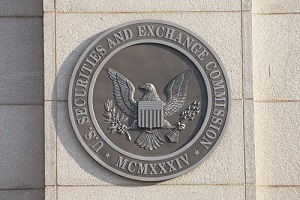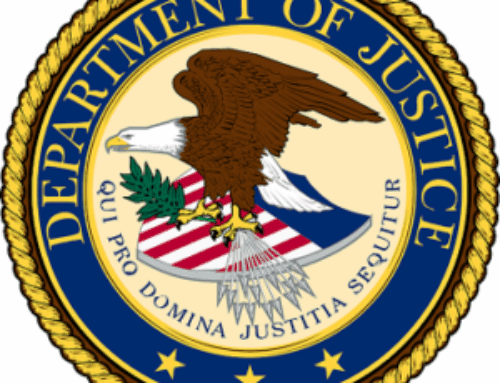It was not necessarily the biggest year for Securities and Exchange Commission (SEC) securities fraud recoveries, with only a handful in the hundred-million-dollar range and only one in the billions. But it was a very active year nonetheless, with the SEC under Gary Gensler pursuing a very aggressive approach to enforcing the securities laws.
With Gensler’s recent departure, and Paul Atkins taking the reins, all bets are off as to what enforcement direction the securities regulator will take going forward. Most agree the agency will go much softer on crypto-related activity, an area that was a high priority under Gensler’s tenure. Some believe the agency also will tread similarly lightly on ESG-related disclosures, also an area the SEC took very seriously under Gensler.
Given the change in leadership, this past year’s big recoveries may not be an indication of what lies ahead for SEC enforcement. Three of the big hits were crypto-related, including the $4.5 billion recovery from Terraform, which was by far the SEC’s biggest haul last year. It is unlikely we will see any big crypto-related recoveries with an Atkins-lead SEC.
Two Foreign Corrupt Practices Act (FCPA) settlements also made the Top 10. Going after foreign bribes has been a perennial enforcement priority for the SEC. It is not clear if that remains a primary SEC focus. A clinical trial fraud matter also made the Top 10, following a recent government push to go after pharma companies behaving badly with their clinical trials. We expect the government to continue this enforcement activity given President Trump has never seemed to cozy up to this industry.
Rounding out the Top 10 were a string of settlements involving various misrepresentations to investors. We believe the SEC will continue going after this kind of bread-and-butter securities fraud, which does not really straddle any kind of partisan divide.
Finally, it is very likely whistleblowers were involved in at least some of these Top 10 enforcement actions. But we do not know for sure because of the SEC’s commitment to protecting the identity of its whistleblowers. What we do know is that since the SEC Whistleblower Program was created under the Dodd-Frank Act, whistleblowers have played an increasingly critical role in SEC enforcement.
And from the SEC’s recently-released Annual Whistleblower Report, this past year was another big year for whistleblowers, with the agency making roughly $255 million in awards to 47 whistleblowers, the third highest annual amount for the program. With these whistleblower payouts, the total SEC whistleblower award tally to date now exceeds $2.2 billion to 444 individual whistleblowers since the program’s inception in 2011.
With all that context, here is our listing of the Top 10 SEC recoveries for 2024:
No. 1: Terraform ($4.5B). On June 13, Terraform Labs and its founder Do Kwon agreed to pay roughly $4.5 billion following a jury verdict holding them liable for orchestrating a years-long fraud involving crypto asset securities that led to massive investor losses when the scheme unraveled. According to the SEC, Terraform and Do Kwon “orchestrated one of the largest securities frauds in U.S. history by . . . falsely claiming that they had achieved the Holy Grail of crypto . . . . In the end, all they succeeded in doing was lying to investors, wiping out tens of billions of dollars in market value, and creating a trail of victims.”
No. 2: Beckton Dickenson ($175M). On December 16, New Jersey-based medical device maker Becton Dickinson agreed to pay $175 million to settle SEC charges of (i) misleading investors regarding its Alaris infusion pump, and (ii) overstating its income by ignoring the costs of fixing multiple software flaws with the pump. According to the SEC, the company engaged in a pervasive pattern of concealing from investors software-related issues with its Alaris pump and the associated FDA approvals that were necessary to address these issues.
No. 3: JP Morgan ($151M). On October 31, JP Morgan Securities and JP Morgan Investment Management agreed to pay $151 million to settle SEC charges in multiple enforcement actions involving misleading disclosures to investors, breach of fiduciary duty, prohibited joint transactions and principal trades, and failures to make recommendations in the best interest of customers.
No. 4: RTX ($124M). On October 16, Virginia-based aerospace and defense company RTX Corporation (formerly Raytheon Technologies) agreed to pay $124 million to settle SEC charges of violating the Foreign Corrupt Practices Act by making illicit payments to Qatari military and other officials to obtain Qatari military contracts. The SEC also charged the company with paying more than $30 million to a relative of the Qatari Emir to secure additional Qatari defense contracts.
No. 5: Tai Mo Shan ($123M). On December 20, Jump Crypto Holdings subsidiary Tai Mo Shan Limited agreed to pay $123 million to settle SEC charges of (i) misleading investors about the stability of Terra USD (UST), a purported “algorithmic stablecoin” issued by Terraform Labs, and (ii) offering and selling securities in unregistered transactions by acting as a statutory underwriter with respect to sales of the Terraform crypto asset LUNA. According to the SEC, this was all part of an agreement between Tai Mo Shan and Terraform to prop up UST when it devalued from its $1 peg in May 2021.
No. 6: SAP ($100M). On January 10, global software company SAP SE agreed to pay roughly $100 million to settle SEC charges of violating the Foreign Corrupt Practices Act by using third-party intermediaries and consultants to pay bribes to government officials in South Africa, Malawi, Kenya, Tanzania, Ghana, Indonesia, and Azerbaijan to secure government contracts in those countries. According to the SEC, the company recorded the bribes as legitimate business expenses in its books and records. The SEC settlement was part of SAP’s global settlement with the Department of Justice and South Africa, with the company agreeing to pay a total penalty of roughly $220 million.
No. 7: Macquarie ($80M). On September 19, registered investment adviser Macquarie Investment Management Business Trust agreed to pay roughly $80 million to settle SEC charges of (i) overvaluing thousands of largely illiquid collateralized mortgage obligations held in 20 advisory accounts, including 11 retail mutual funds, and (ii) executing hundreds of cross trades between advisory clients that favored certain clients over others. The SEC found the company’s conduct “alarming” in taking advantage of retail mutual funds it advised and executing unlawful cross trades to mitigate its overvaluation of fund assets.
No. 8: Silvergate Capital ($50M). On July 1, Silvergate Capital, along with its former CEO and Chief Risk Officer, agreed to pay $50 million to settle SEC charges of misleading investors about (i) the strength of the company’s Bank Secrecy Act/Anti-Money Laundering (BSA/AML) compliance program, (ii) the company’s monitoring of crypto customers, including FTX, by Silvergate’s wholly owned subsidiary Silvergate Bank, and (iii) the company’s losses from expected securities sales following FTX’s collapse. According to the SEC, Silvergate’s automated transaction monitoring system failed to monitor more than $1 trillion of its customer’s transactions.
No. 9: UPS ($45M). On November 22, United Parcel Service agreed to pay $45 million to settle SEC charges of misrepresenting its earnings by failing to follow generally accepted accounting principles (GAAP) in valuing one of its worst performing businesses. Specifically, the company failed to disclose that nearly $500 million of goodwill associated with its freight business was impaired, instead relying on an outside consultant’s valuation of the business without giving the consultant information necessary to conduct a fair valuation.
No. 10: Cassava Sciences ($40M). On September 26, Cassava Sciences — along with its CEO and SVP of Neuroscience — agreed to pay roughly $40 million to settle SEC charges of misleading investors about the results of a Phase 2 clinical trial for the company’s key developmental drug relating to the treatment of Alzheimer’s disease. According to the SEC, Cassava claimed the Phase 2 results showed significant memory improvement of the patients involved in the trial but failed to disclose those results were not based on the full set of patient data but on a cherry-picked subset of the data collected from an unblinded review of the results.
* * *
If you would like to learn more about any of these settlements or what it means to be an SEC whistleblower, please do not hesitate to contact us. We will connect you with an experienced member of the Constantine Cannon whistleblower team. Maybe you have what it takes to make the Top 10 in one of the years to come!
Read Top 10 SEC Recoveries for 2024 at constantinecannon.com






Leave A Comment